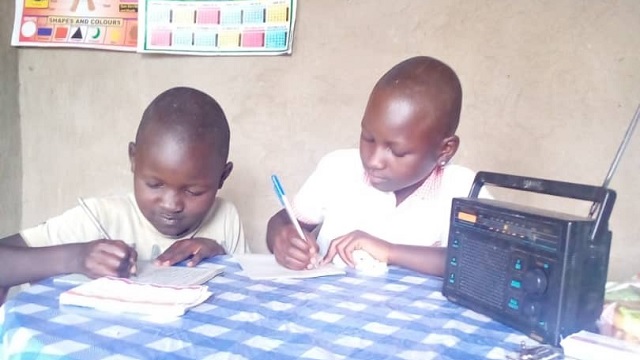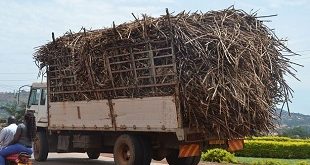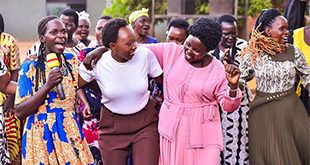
Kampala, Uganda | THE INDEPENDENT | A number of learners across the country are still struggling to access reading materials which were recently distributed by the Ministry of Education to keep children learning during the ongoing COVID-19 lockdown.
The response plan is part of a framework outed by the education Minister Janet Museveni proposing that lessons be delivered through print and self-study home packages, recorded lessons and live presentations on radio, television-lessons and online uploads. It came barely a month after the government announced the closure of schools to forestall the spread of coronavirus disease-COVID-19.
But even as 15 million learners remain stranded in homes across the country, the distribution of the materials is still a challenge. For many districts, the distributed packages are not enough to cover the entire population of pupils yet many of the families do not own television and radio stations to tap into the lessons that are broadcasted on radio stations and televisions.
In the districts of Pallisa, Bududa, Busia, and Mbale, a number of parents say that it is overwhelming for the government to task parents who are struggling to get food to purchase or even photocopy the learning materials. They add that the interventions are impractical in an area that does not have a constant power supply and where people can hardly afford to sustain power bills, smartphones and internet data.
In Jinja, the parents say that due to the limited number of copies distributed at every village, the learning materials are not helping their children to learn during the lockdown. As a result, parents have abandoned the initiative.
Kasese Guide Radio and Uganda Broadcasting Corporation were selected by the Ministry of Education to offer lessons in Rwenzori region while Messiah FM has voluntarily allocated an hour in its programming to a teaching programme. However, a number of families do not access to the mediums and as a result, they continue to miss the programmes.
The parents are concerned that children from poor households will be left behind since they are unable to match the needs that came with the new learning model. They have appealed to the government to install TVs in communities for such children to benefit from the programmes.
But the problem does not stop in the communities. Ali Dago, the head of Literature, Languages and Linguistics department at Islamic University in Uganda told Uganda Radio Network in an interview that the learning process lacks the positive pressure learners get from their peers and the influence of teachers as they facilitate the learning process.
“We are actually grappling as teachers, trying to take desperate steps to ensure continuity of learning but the challenges are immense” he said.
******
URN
 The Independent Uganda: You get the Truth we Pay the Price
The Independent Uganda: You get the Truth we Pay the Price


